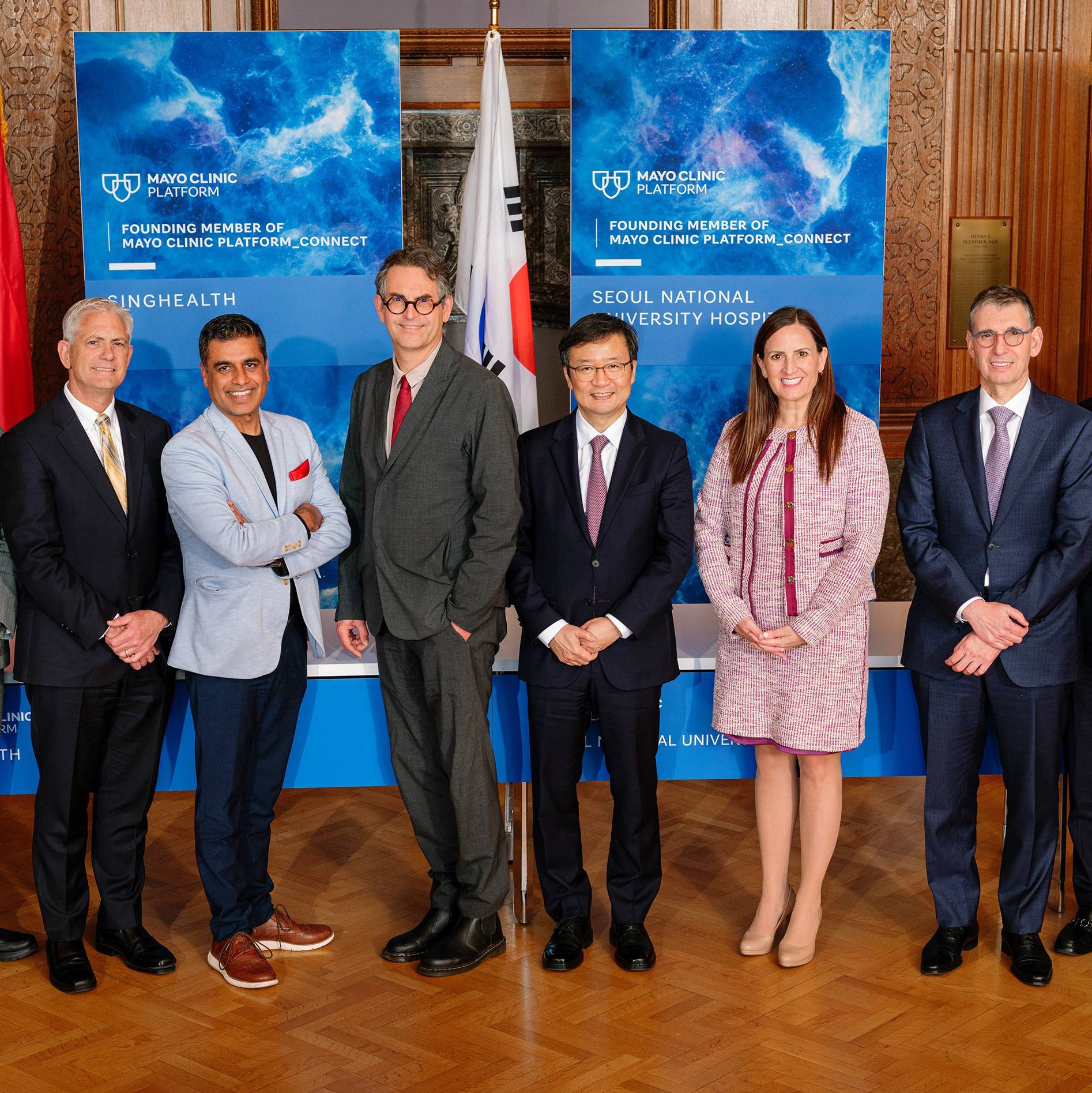-
 Minnesota
MinnesotaTop Research Institutions Join Mayo Clinic in Asking Congress to Preserve NIH Funding
ROCHESTER, Minn. — July 11, 2012. Mayo Clinic and 18 other leading medical research institutions nationwide are urging congressional leaders to maintain current funding levels for the National Institutes of Health (NIH). They say medical research funding is essential for the health of the nation and the economy. NIH-funded research happens in all 50 states, and occurs in large and small communities across the nation — strengthening the economy and creating jobs. It is estimated that every $1 million in federal research funding creates at least 16 jobs in a community.

The institutions also ask that a federal salary cap for NIH-funded researchers be returned to its previous level. The letter says the pay cut to scientists will drive some away and make recruitment of "the best and the brightest" even more difficult.
Most medical research at U.S. academic medical centers — whether laboratory studies or clinical trials — is supported by NIH dollars. That includes research in all key disease areas: all types of cancer; Alzheimer's disease; Parkinson's disease and other neurological disorders; heart and lung diseases; diabetes and obesity; genetic conditions; infectious diseases; mental illness and more. Almost any major advance or therapy in these areas has involved NIH funding.
In recent years, inflation and budget cuts have led to cuts in award amounts and the number of grants. In the past, one-third of grant applications received funding in many disciplines. Now only 12 percent in some areas win funding. Difficulty obtaining grants has driven some experienced researchers from their scientific careers and made many students think twice about research as a career choice.
Those signing the letter are:
- Arizona State University
- Cleveland Clinic Lerner Research Institute
- Duke University School of Medicine
- Henry Ford Health System
- Mayo Clinic
- New York University School of Medicine
- Northwestern University Feinberg School of Medicine
- Oregon Health & Science University School of Medicine
- University of California Health System
- University of Colorado Anschutz Medical Campus
- University Hospitals Case Medical Center
- University of Michigan Health System
- University of Minnesota
- The University of Texas at Arlington
- The University of Texas System
- University of Utah School of Medicine
- University of Wisconsin School of Medicine and Public Health
- University of Wisconsin System
- Vanderbilt University
Text of the letter sent to the U.S. Congress follows:
The undersigned institutions are recognized as some of the leading research and academic medical centers in the United States. We appreciate the opportunity to bring to your attention two issues that dramatically impact the research function of our institutions:
- National Institutes of Health (NIH) — It is critically important that the NIH continues to be recognized as a national priority. We strongly urge your consideration of funding NIH at the $32 billion level in the FY 2013 Labor-HHS-Education appropriations bill.
- Executive Pay Scale/Salary Cap — The restoration of the salary limit imposed on extramural NIH researchers to Level I of the Executive Pay Scale is critical to our ability to attract and retain the most qualified researchers to our institutions and the field. We urge your inclusion of the salary cap restoration during your subcommittee's deliberations.
We trust you know of our deep commitment to delivering high-quality, patient-centered care to patients who come through our doors. At the same time, our organizations are conducting research to improve basic understanding of disease and wellness, to create innovations in health and health care delivery, and to discover new technologies and therapeutics that will advance medicine and our ability to heal.
We respect the difficult decisions you must make, and we urge you during those deliberations to view medical research as an investment in our nation's health, security and economy. NIH-funded research happens in all 50 states, and occurs in large and small communities across the nation — strengthening the economy and creating jobs. The investment in NIH not only improves the health of the nation, but also benefits our economy in the short term and long term.
An increase in the FY 2013 investment for NIH will provide researchers across our country the tools and resources necessary to continue their work to prevent, alleviate and cure diseases, including some of our nation's most debilitating and costly conditions.
Equally important to our research function is the need to restore the salary limit imposed on extramural NIH researchers to Level I of the Executive Pay Scale. As you recall, the FY 2012 funding reduced the salary cap to Executive Level II. This is very important; this is a reduction of $20,000 (10 percent) to every NIH extramural researcher. While the reduction in the salary cap will have a negligible (less than 1 percent) impact on the NIH budget, it will have a dramatically disproportionate impact on individual investigators and their institutions.
As our country strives to improve basic, clinical and translational research, we must not hinder the recruitment and retention of our nation's most talented investigators, scientists and physician scientists. The United States must remain committed to improving the health of the nation and must be globally competitive in research and technology.
As a nation, we must value our scientists and provide them appropriate incentives to pursue and continue a career in biomedical research. We need the best and the brightest minds pursuing new knowledge that can be delivered into the clinical practice to help patients. Now is not the time to exacerbate the decline of medical research dollars and discourage our nation's most talented researchers.
We urge your careful consideration of our policy concerns and specific requests. We look forward to working with you on these very important issues.
###
About Mayo Clinic:
Recognizing 150 years of serving humanity in 2014, Mayo Clinic is a nonprofit worldwide leader in medical care, research and education for people from all walks of life. For more information, visit 150years.mayoclinic.org, www.mayoclinic.org and newsnetwork.mayoclinic.org.
Media Contact: Robert Nellis, 507-284-5005 (days), newsbureau@mayo.edu







